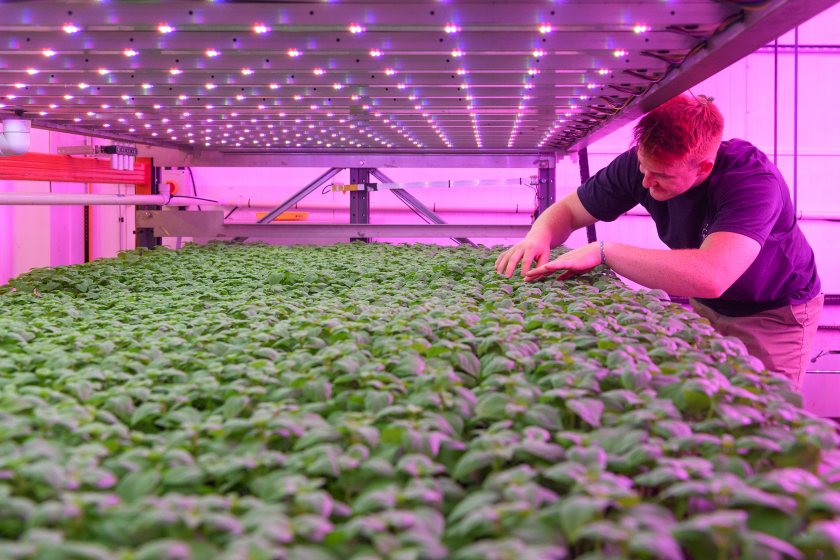
Agricultural researchers at the James Hutton Institute have secured £2.4m to help launch three new projects aimed at 'transforming' horticultural practice in the UK.
Funding was secured for projects; light pulsing technologies in vertical farming (£305k) and developing genetic tools to accelerate breeding for indoor-grown lettuce (£562k).
An additional £350k funding was secured from the Biotechnology and Biological Sciences Research Council (BBSRC) to pioneer medicinal cannabis research.
Support from farming industry partners totalling £1.22m for the three projects brings the total value for the projects to £2.4m.
The three multi-year projects are designed to transform horticultural practice and utilise modern breeding approaches to further new products and services.
They also have a focus on sustainability, advanced pharmaceutical applications and genetic research.
One project will focus on creating varieties of ‘super-lettuce’ which thrive in low light conditions, allowing dense urban environments and indoor sites to be viable options for future growth.
The research aims to pave the way for a new era of ‘hyper-efficient’ urban agriculture that will improve both yield and quality by identifying key traits and optimising them for these previously unviable locations.
It is also hoped the research will reduce the industry’s carbon footprint and help the UK reach its sustainability goals.
Another project will see Dundee-based James Hutton Institute become the home of state-of-the-art light pulsing technology.
The research will aim to revolutionise how basil and other herbs are grown vertically – improving efficiency, nutritional quality and reducing energy consumption.
The project is focused on sustainability and improving food security and reducing the UK’s reliance on imported produce.
Derek Stewart, director of the advanced plant growth centre, hopes these projects will keep the James Hutton Institute at the forefront of UK agricultural research.
He said: “Research will also see our team prove vital in the future food security and sustainability of this nation through our vertical farming project.
"We hope the success of these projects will be felt for many years to come."
The final project aims to support the growing need for medicinal cannabis by helping standardise the product to meet pharmaceutical quality though environment manipulation and the development of new cannabis plant architectures.
Currently, the varieties - or cultivars - vary greatly based on the region they are grown in, creating different cannabinoid profiles.
The research aims to use controlled environment agriculture tech to create a consistent product, and help the UK to maintain its position as the world's largest producer and exporter of medicinal cannabis.
